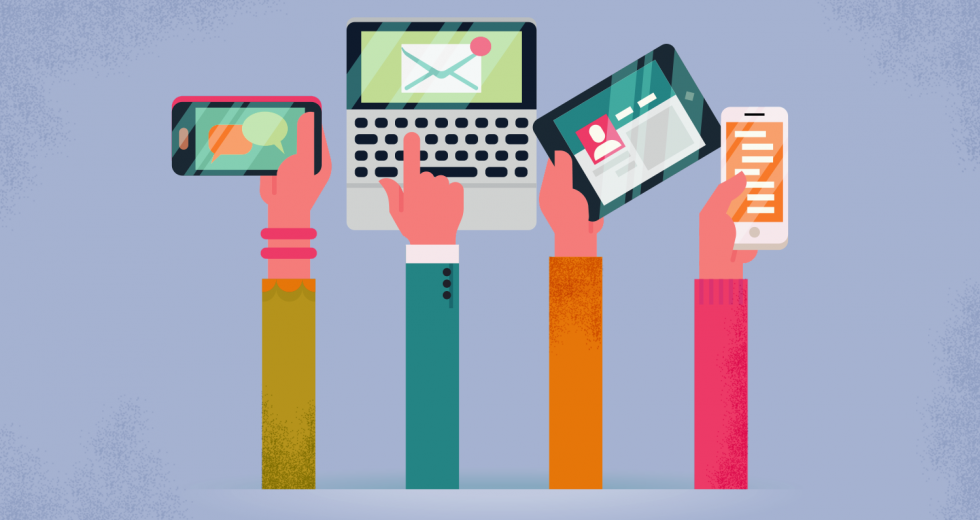As a self-diagnosed introvert and generally busy person, I find the internet and my accompanying devices to be true friends. I like the solitude of working during the witching hour, and the comfort of firing off late-night emails when a thought comes to me without having to wait until the window of office hours opens.
But I recently took a digital hiatus while I spent two weeks in Japan, visiting family and friends, many of whom I hadn’t seen in a decade. (I did a couple of stints there as an English teacher between 2002-2008.) It was also the first time I truly disconnected from my phone (and my computer) in perhaps almost as long. I’ll admit to logging onto station wifi for train schedules and to upload the occasional Instagram photo, but that and my hyperconnected standard way of living felt worlds apart.
At first it felt awkward and a bit uncomfortable — like dreaming of a missing limb yet assured somewhere in your subconscious you’ll awake whole again. I found myself reaching to check texts or calls that simply were not coming — my phone would sit on flight mode for two weeks, with connection to wifi unreliable and infrequent. Yet after a few days, my muscle memories accepted that, for now, my phone was simply not the companion it typically is. The only thing demanding my attention were my tangible surroundings — sights, smells and faces that felt simultaneously foreign yet intensely familiar.
Related: The Strong, Silent Type
Related: Take It Easy
Related: You Look Like You Need a Vacation
My Japanese was rusty, to say the least. I found in-person communication — when hand gestures, body language and the occasional impromptu diagram oiled the gears of conversation — far easier. Discussing what one had for dinner is one thing; explaining the assets and obstacles of a Bay Area Megaregion, or teasing out the differences between “puritanical” and “obsessive compulsive disorder” when Google translate fails you, is another.
This month’s cover story (“Lost in Translation” by Jeff Wilser, which will be released online next week Tuesday) notes that 70 percent of our communication is nonverbal — head tilts, furrowed brows, pursed lips. It’s those nuances that allow us to know, and understand, the semantics of communication. Dr. Hakan Ozcelik, a management professor at Sacramento State, explains that communication hinges on creating a “shared experience,” and that living without these non-verbal cues is unhealthy. We need to see people to build a true sense of knowing.
Typically, I prefer written communication, specifically email. (Worth noting: I also complain incessantly about the volume of email I receive.) Not only does this give me time to collect my thoughts and craft a measured, diplomatic response, but it provides a written record that, while rarely useful if I’m honest, offers a degree of comfort. But beyond its inherent efficiencies, online communication has also enabled the creation of vibrant communities whose members span the globe, brought together by common interests or experiences. It’s helped people break free of isolation.
The internet has allowed legions of “Lady Bird” fans to find one another and discuss complex relationships with mothers and/or hometowns. It gave Sacramentans the excitement of local musician Hobo Johnson’s viral video auditioning for an NPR music series. These are joyous moments, when we have the chance to cheer Sacramento talent on as they work their way into a national, and global, spotlight. But while technology helps connect and maintain community, it can’t sustain one on its own. A community is only as strong as the individual relationships held within it.
I used to scoff when people would chide me for constantly having a phone in my hand, and conveniently unhear comments from friends or family about my not being “present.” Faith in my ability to multitask convinced me I wasn’t truly missing anything. Yet half a world away, finally sitting down to share a meal with loved ones with whom I’d been limited to digital communication for almost a decade, I was reminded of how much of one another we miss when we don’t share physical space. Digital tools had enabled us to remain connected, but that was only because we had already formed relationships strong enough to span years and hemispheres.
I’m a big fan of chiding people for meetings that should have been emails, and emails that should have been texts. But I’m going to try to take the in-person meeting a bit more often, and next time you’re about to fire off a text, I ask you to consider if a coffee date might be better.
Recommended For You

Back and Forward: Dr. Hakan Ozcelik
Sacramento State professor discusses management theory
Dr. Hakan Ozcelik Professor, a professor of management in the College of Business Administration at Sacramento State, offers his insight into management theory.

Lost in Translation
Are the very digital tools designed to enhance communication actually making us worse communicators?
Most of us can’t seem to put down our phones, checking them anywhere from 80 to 150 times per day, and some experts say this addiction is taking a toll on soft skills.



